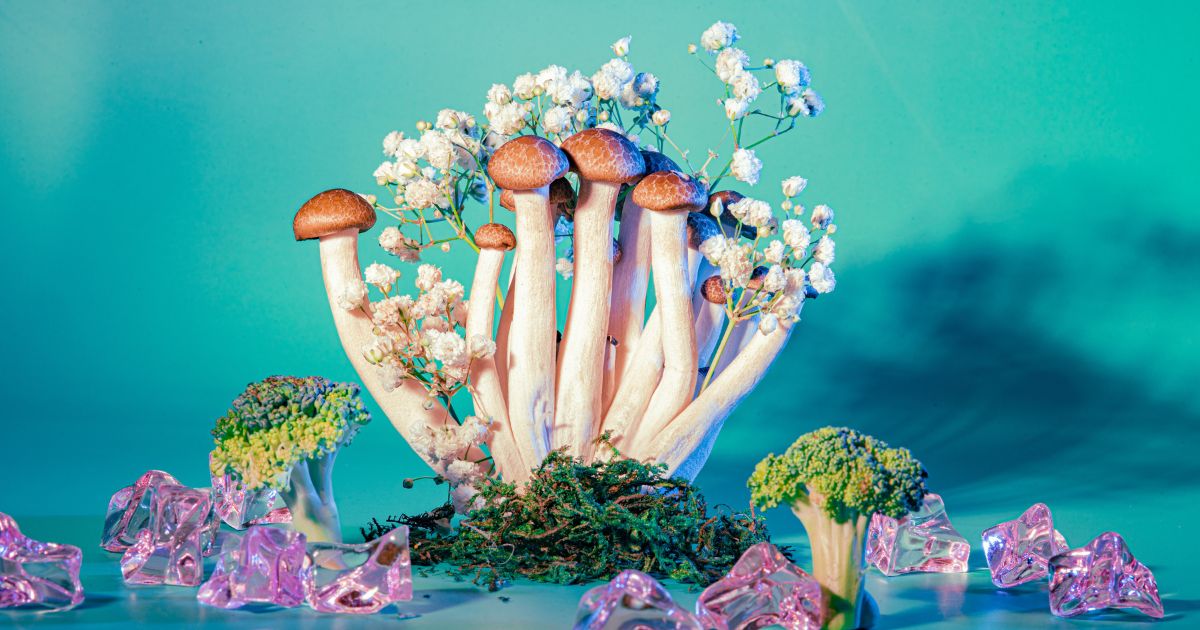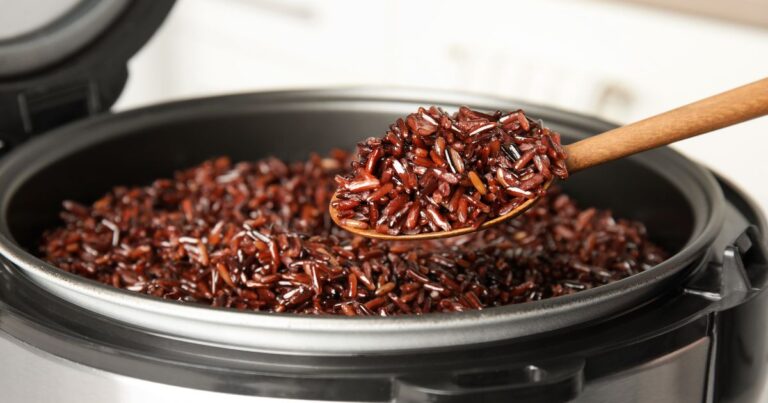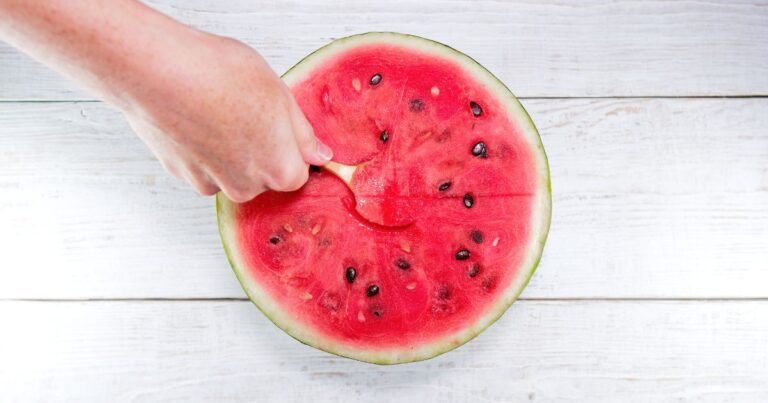Is Lion’s Mane Mushrooms A Psychedelic? Getting High On Health
If the appearance of the Lion’s Mane mushroom makes you think it belongs in a wizard’s potion rather than on your dinner plate, you’re in for a surprise. And for those wondering, “Is Lion’s Mane a psychedelic? Well, you’re not alone. However, before you start thinking this mushroom is your ticket to a psychedelic experience, let’s unravel the truth.
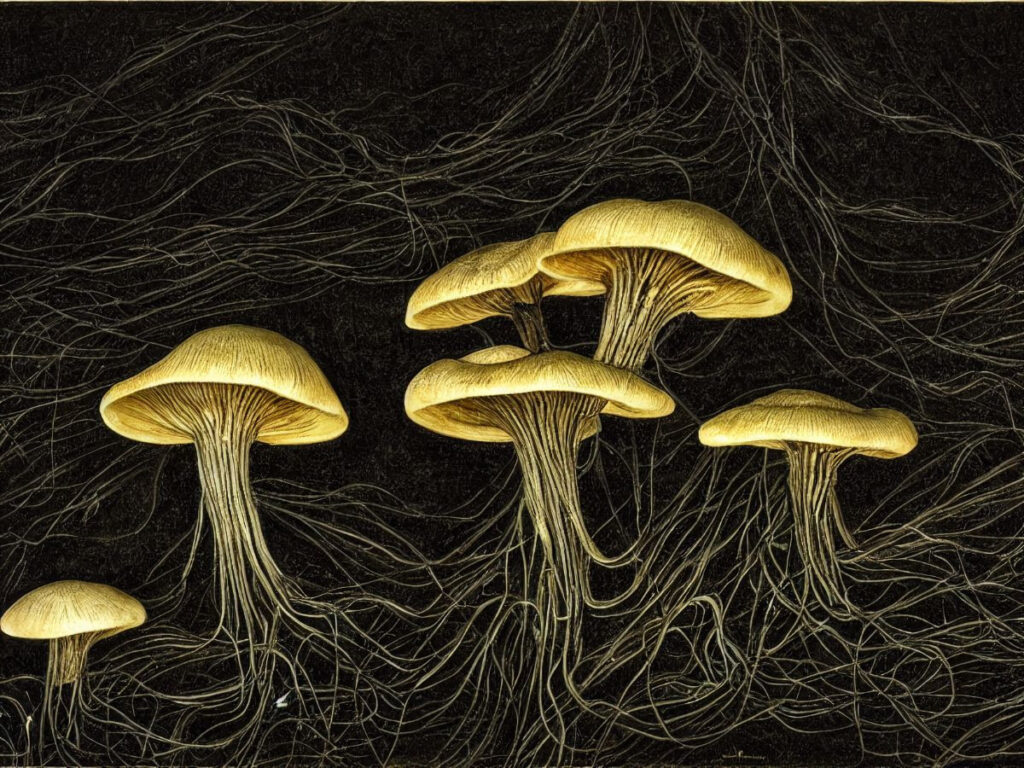
Lion’s Mane Mushroom Side Effects And You
Now, if you’re anything like me, a lover of all things unusual and health-related, your curiosity is piqued.
You’ve heard whispers about this so-called “lion’s mane medicinal mushroom” and its magical health benefits.
But then, a question pops into your head, nudging your imagination: “Is Lion’s Mane psychedelic?”
It’s a reasonable question, especially in an age where the line between traditional wellness and modern experimentation is becoming ever so blurred.
I remember the first time I encountered Lion’s Mane. It was at a friend’s dinner party, served as a gourmet Lion’s Mane Risotto dish that everyone couldn’t stop raving about.
That’s when I learned about its health benefits and realized they are magic mushrooms all alone – from boosting cognitive function to potentially supporting nerve growth.
But the question remained, partly in jest, partly in genuine curiosity: could this brain-like mushroom be a gateway to a psychedelic experience?
Spoiler alert: it’s not. But what I discovered about Lion’s Mane was far more fascinating and grounded in reality.
Let’s jump into lion’s mane mushroom history, its uses, and, most importantly, we’ll answer once and for all the burning question: “Is Lion’s Mane psychedelic?”
Get ready to have your mind expanded, but not in the way you might think!
Table of Contents
Understanding Lion’s Mane: More Than Just a Fungus Among Us
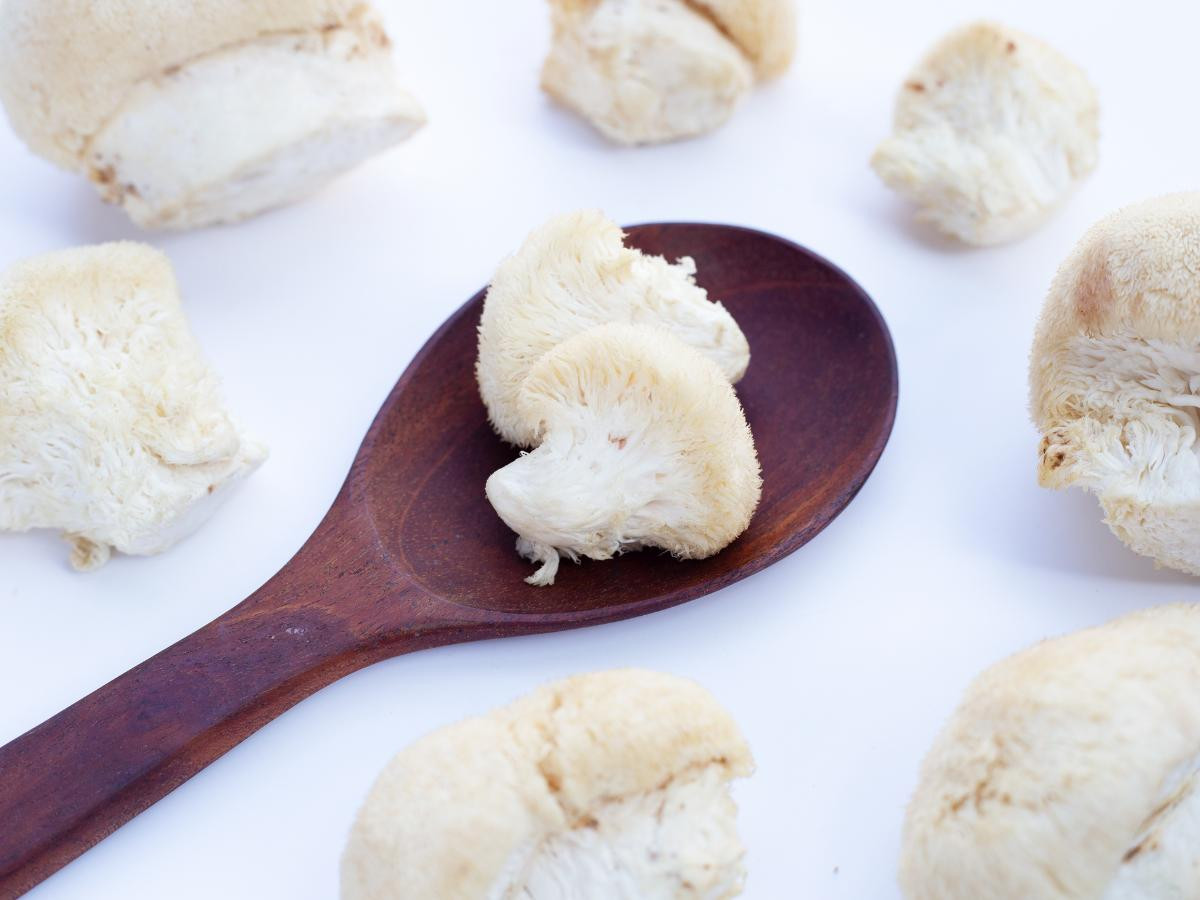
How could something that looks like a whimsical prop from a fantasy movie hold such acclaimed health benefits?
What Exactly is Lion’s Mane?
Think of Lion’s Mane as nature’s brainy pom-pom. This mushroom doesn’t just have a striking appearance, resembling a cascading waterfall of white tendrils, and boasts a rich history. It’s not your average button mushroom or other mushrooms you see regularly, found clinging to hardwood trees in temperate forests. It’s more like the wise old sage of the fungal kingdom.
A Peek into the Past:
Lion’s Mane isn’t a new kid on the block in the wellness world. It’s been a star in Traditional Chinese medicine practice and Asian Lion’s Mane Culinary Dishes for centuries. I remember reading ancient texts describing it as “the mushroom of the mind,” revered for its potential to enhance brain function. If ancient wisdom and modern science agree, it’s worth paying attention to.
Dispelling the Myths:
Returning to our pressing question: “Is Lion’s Mane psychedelic?” It’s easy to see why some might leap to this conclusion. In our quest for natural health remedies, we often blur the lines between different types of natural substances and psychedelic properties. But let me be clear – while Lion’s Mane Mushrooms are a powerhouse, it’s not in the business of altering your reality. Its magic lies not in psychedelic compounds but in its beneficial compounds found to rejuvenate your Digestive health and boost your immune system.
Is Lion’s Mane Psychedelic?

In my quest to understand Lion’s Mane Mushrooms, I realized that the mushroom world is as diverse and complex as ours.
It’s filled with characters, some magic mushrooms that can take you on a mind-altering journey, and others, like Lion’s Mane Mushrooms, that support your journey to better potential health benefits with a boost in cognitive brain health and mental health clarity.
The Answer To The Lion’s Mane Psychedelic Confusion
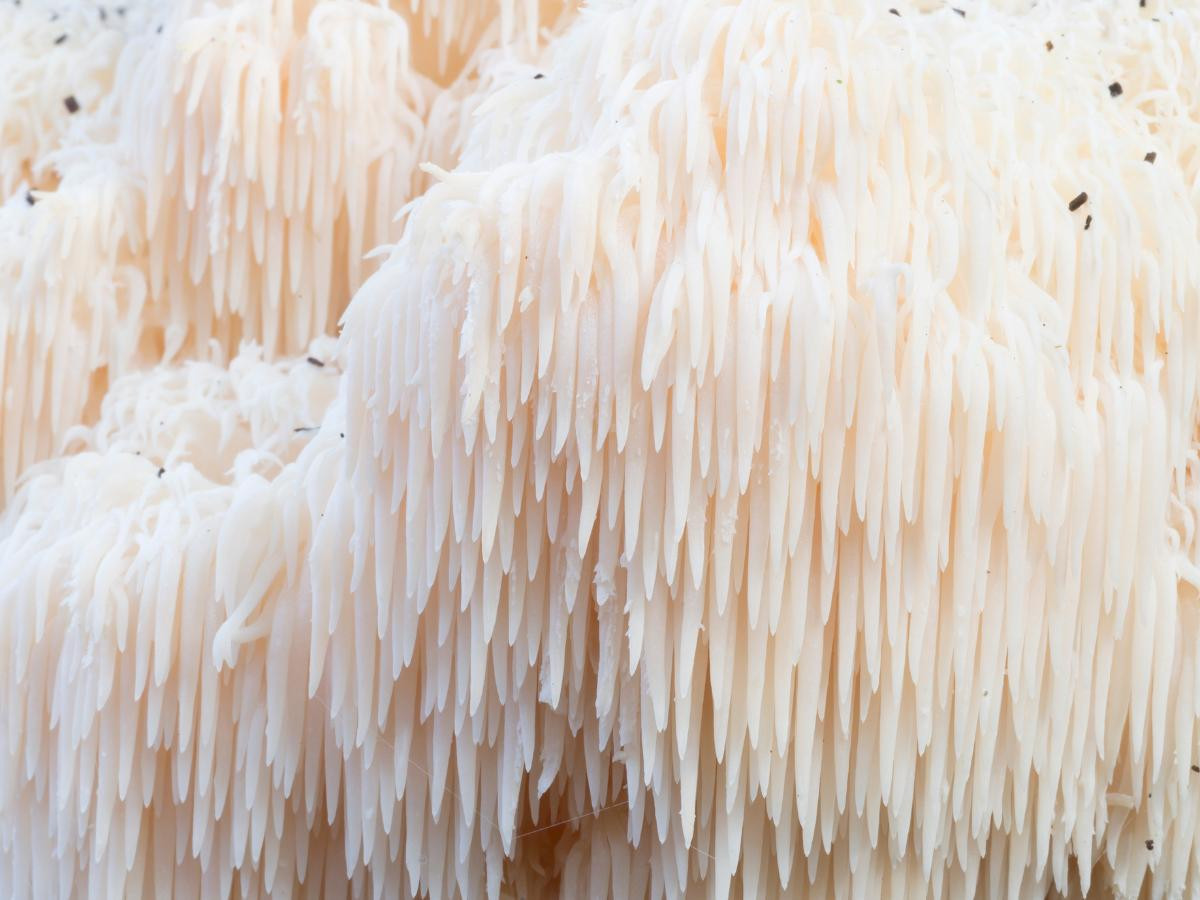
As someone who’s always been fascinated by the intricate wellness routine dance of nature and wellness, I was intrigued by the idea that a fresh lion’s mane mushroom could be both a brain booster and a psychedelic.
What’s in a Psychedelic?
To get to the bottom of this, I first needed to understand what makes something psychedelic. In a nutshell, psychedelics are substances that significantly alter perception, mood, and a host of other cognitive processes.
Think psilocybin mushrooms or LSD. But does our shaggy friend Lion’s Mane fit into this category?
Why Might One Think Lion’s Mane is Psychedelic?
The rise in popularity of both medicinal mushrooms and psychedelics has led to some confusion. It’s like finding two mushrooms in a forest and wondering if both will lead you to the same mystical journey.
With its otherworldly appearance and brain-enhancing reputation, it’s easy to see why some might add Lion’s Mane to the psychedelic family. But as I discovered, appearances can be deceiving.
Lion’s Mane: The Brainy Reality
After poring over studies and speaking to experts, the verdict was in. Lion’s Mane is no psychedelic. Instead, it’s a natural nootropic, enhancing brain function without the mind-bending side effects.
It’s like the wise sage of the mushroom world, offering wisdom (read: cognitive support) without the wild ride. So, “Is Lion’s Mane psychedelic?” It turns out, this question is like asking if a library is a disco. Intriguing but in a completely different realm.
Lion’s Mane: The Brain’s Unsung Hero
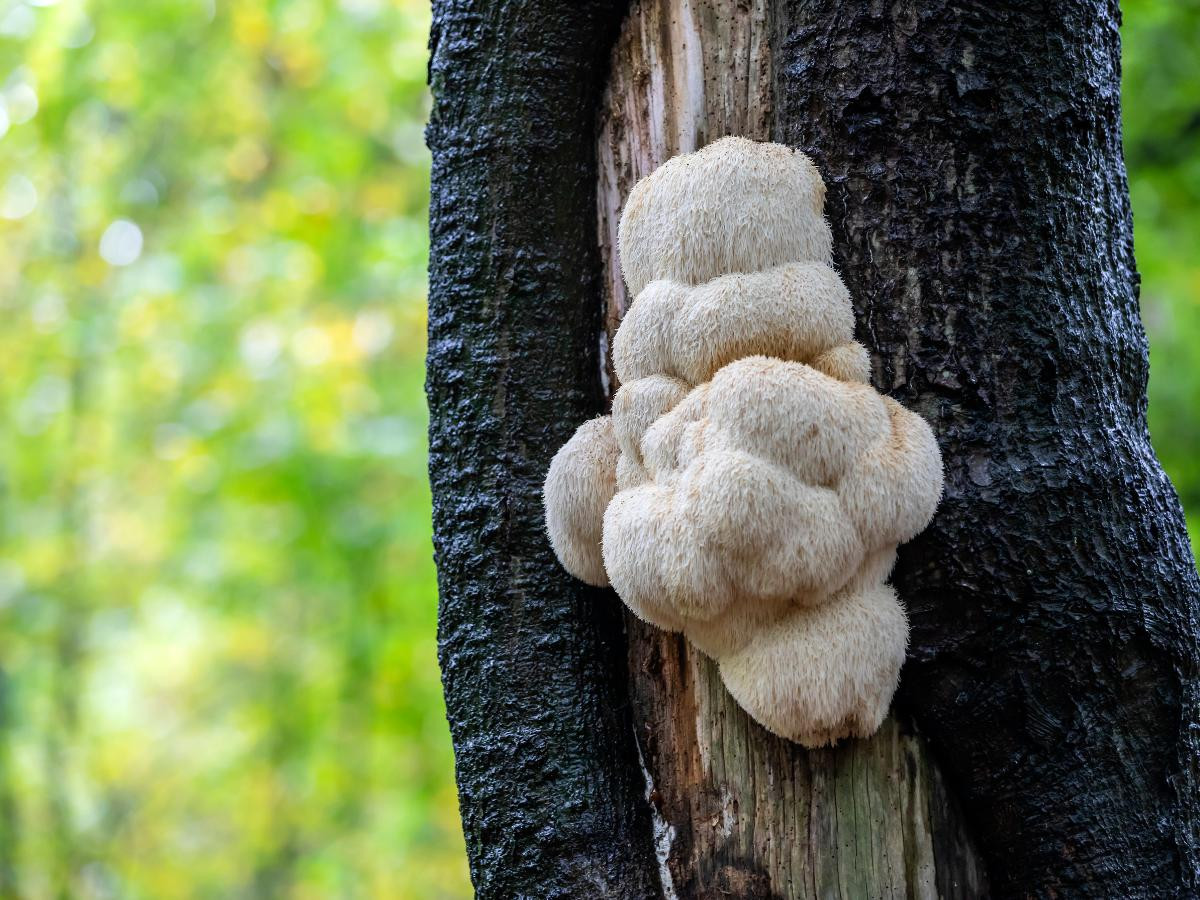
My quest to understand Lion’s Mane or Hericium Erinaceus took a turn towards the scientific realm. This exploration into the scientific aspects of Lion’s Mane was an eye-opener for me.
It shifted my perspective from curiosity to profound respect for this humble yet powerful mushroom with numerous health benefits.
Research Findings: A Deep Dive
Picture this: a natural substance that doesn’t just nourish your body but also has the potential to rejuvenate your brain.
That’s what the studies on Lion’s Mane suggest. Scientists have found that it stimulates the production of nerve growth factors.
A Bounty of Health Benefits
The more I read, the more I was amazed. Lion’s Mane isn’t just a one-trick pony. Its positive effects are linked to improved memory and improved cognitive function and even offer a glimmer of hope in battling neurological diseases.
I remember thinking, “This is no ordinary mushroom; it’s like a natural elixir for the brain!” It’s not every day you come across something that has the potential to turn the tide in the fight against cognitive decline.
The Verdict: Brain Booster, Not Psychedelic
So, circling back to our burning question, “Is Lion’s Mane psychedelic?” The science is clear: Lion’s Mane is a cognitive enhancer, not a mind-altering substance. It’s like comparing a skilled teacher who enriches your mind with a magician who dazzles it. Both are impressive but in entirely different ways.
Lion’s Mane vs. Psychedelic Mushrooms: The Big Difference
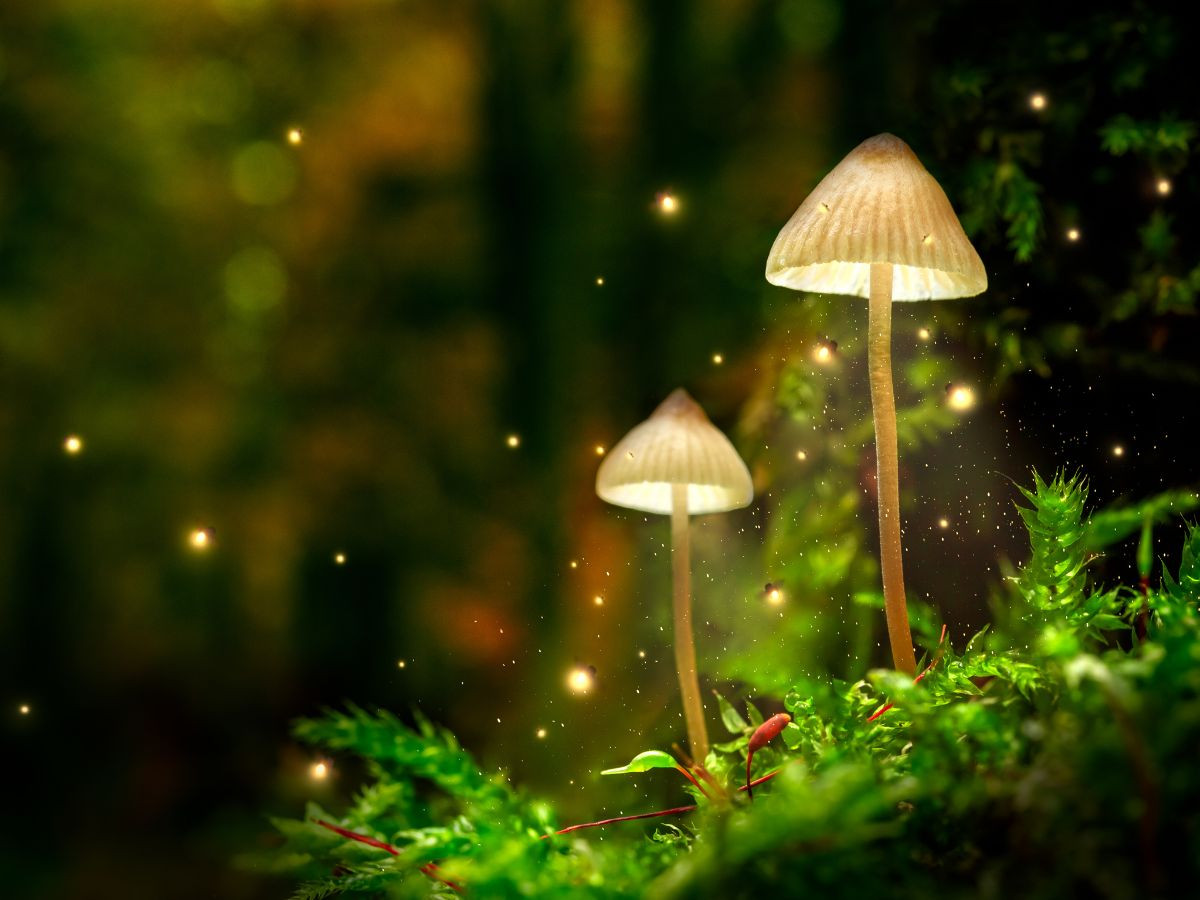
My journey of understanding the health benefits of Lion’s Mane led me to an inevitable comparison with its more hallucinogenic brethren.
As someone who values clarity amidst confusion, I found this comparison fascinating. This comparison was a revelation to me.
It underscored the importance of understanding and respecting each substance for what it truly is. Lion’s Mane, with its unique properties, stands out as a testament to nature’s ability to provide cognitive support in a gentle yet powerful way.
Chemical Composition: Worlds Apart
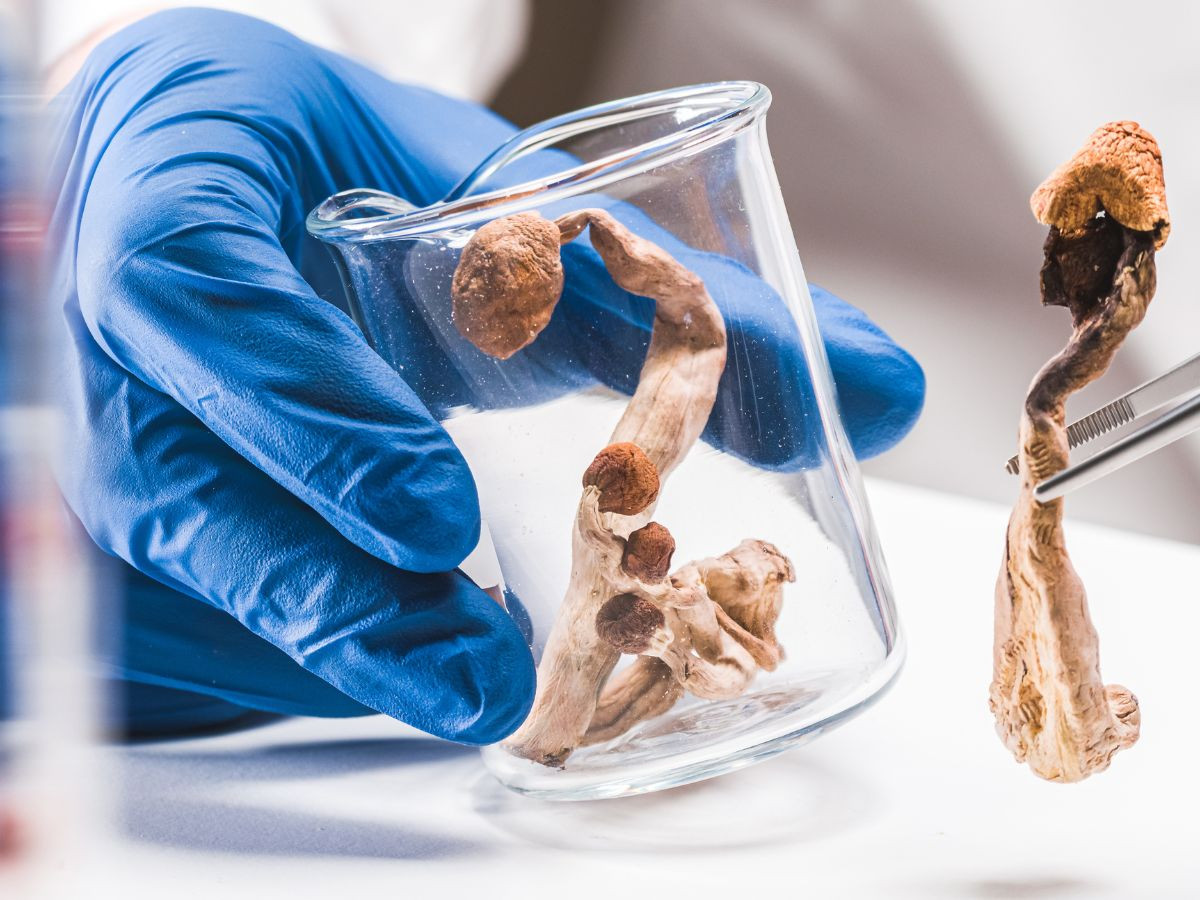
At their core, Lion’s Mane and psychedelic mushrooms are as different as a librarian and a rockstar. While Lion’s Mane boasts compounds like hericenones and erinacines, known for their brain-boosting benefits, psychedelic mushrooms contain substances like psilocybin, famous (or infamous) for their mind-altering effects. It’s a classic case of different strokes for different folks.
Effects on the Human Body: A Contrast in Experience
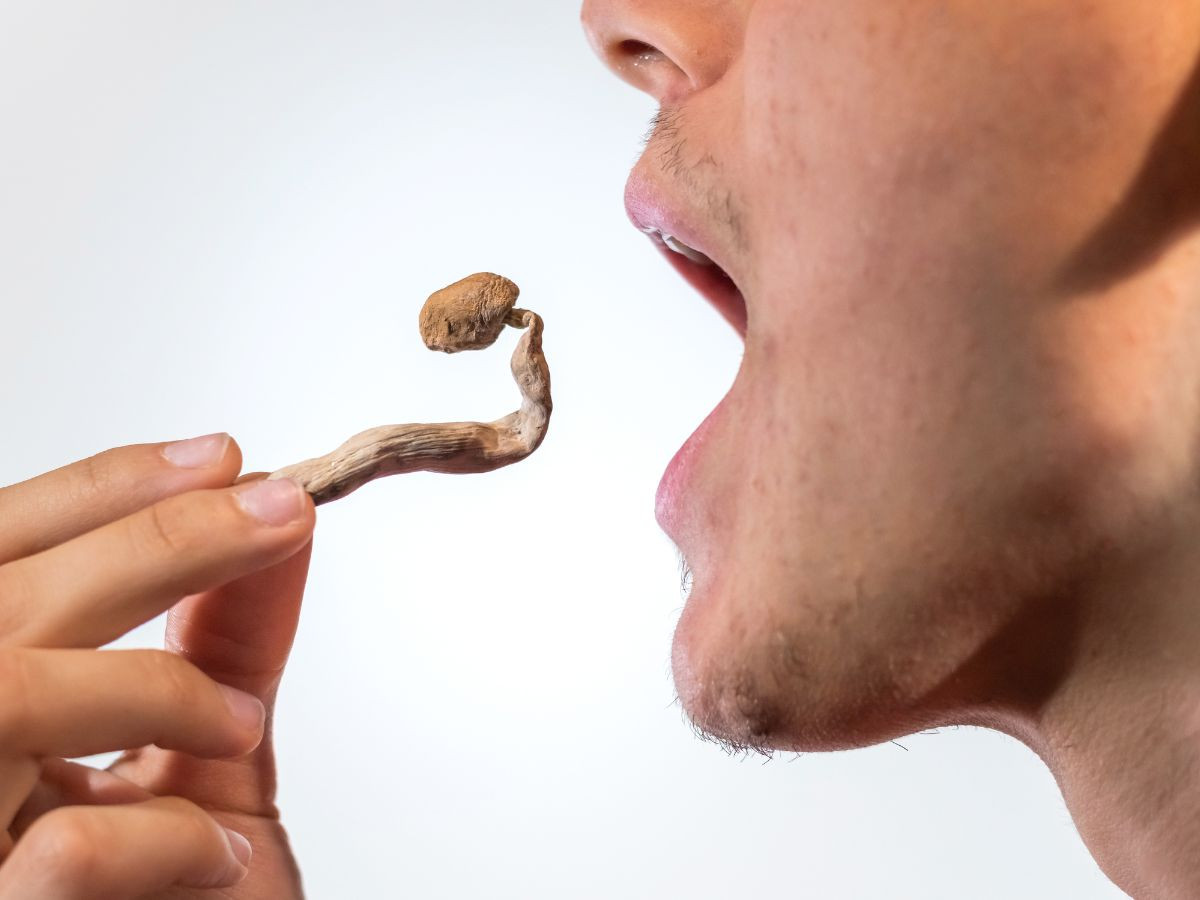
The experiences offered by these mushrooms are poles apart. Lion’s Mane works quietly, almost like a nurturing mentor for your neurons, enhancing cognitive abilities and potentially repairing nerve damage. On the flip side, psychedelic mushrooms take you on a vivid journey of altered perceptions and heightened emotions. It’s like comparing a thoughtful conversation with a thrilling roller coaster ride – both valuable but in very different contexts.
Legal Status and Safety: Navigating the Norms

Legality and safety are crucial in the ever-evolving landscape of health and wellness. Lion’s Mane enjoys a status of legality and safety, with minimal side effects. It’s like a trusted, well-respected member of the community. Psychedelic mushrooms, however, walk a fine line legally in many places, and their use requires caution and respect for their powerful effects.
Incorporating Lion’s Mane into Your Daily Regimen
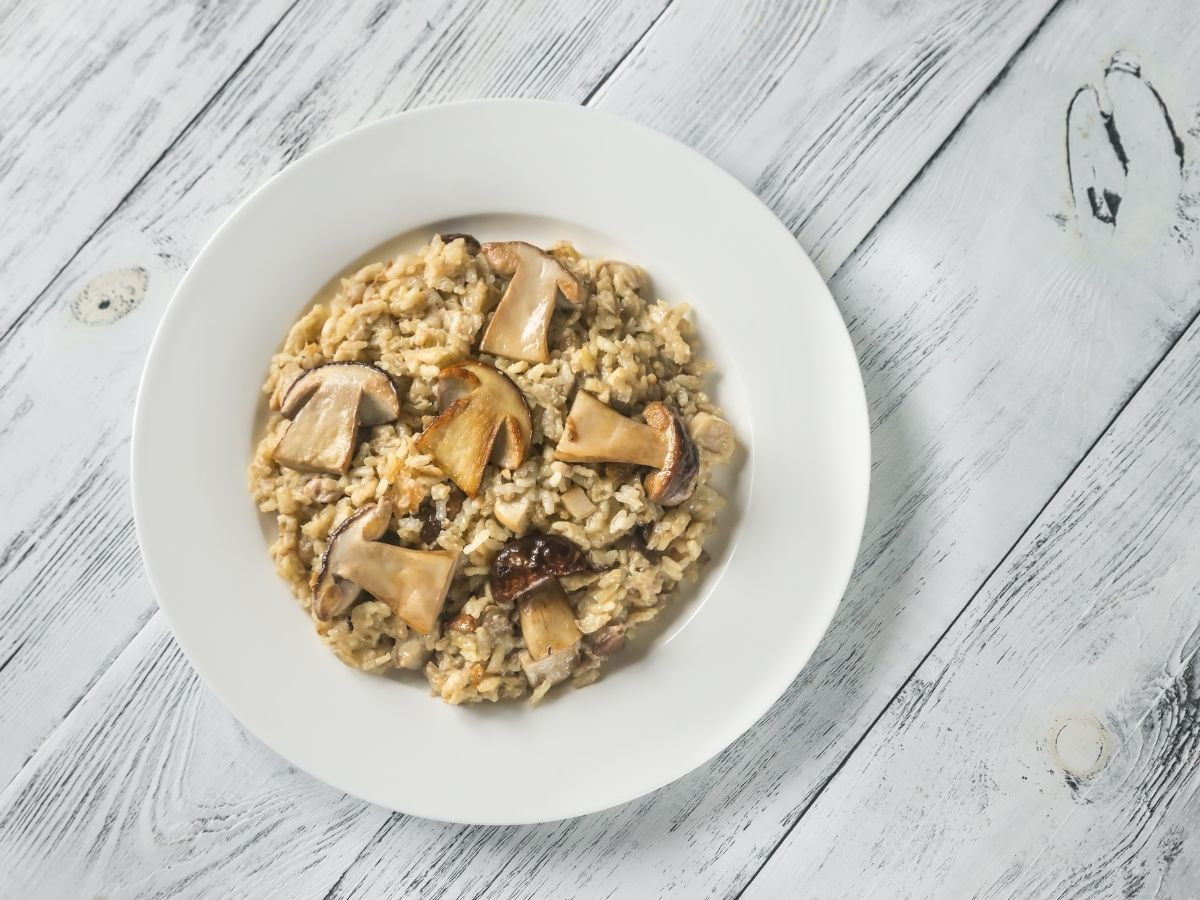
As I navigated through the myriad of information about Lion’s Mane, I reached a point where theory had to meet practice.
How could I, and others interested, realistically incorporate this remarkable mushroom into our daily routines?
A Culinary Adventure
My first encounter with Lion’s Mane was in the kitchen. It’s a culinary chameleon – delicious sautéed, added to soups, or even brewed as Lion’s Mane tea.
As a supplement, it’s available in various forms: capsules, powders, and tinctures. Each form offers a unique way to enjoy its benefits, making it a flexible addition to any lifestyle.
Navigating Dosages
When it comes to dosages, there’s no one-size-fits-all. It depends on the form you’re taking and your individual health goals. In my journey, starting with recommended dosages on product labels and adjusting as necessary was key.
Understanding Side Effects and Source Quality
Just like any supplement, quality matters. I learned to choose Lion’s Mane products from reputable sources to ensure purity and efficacy. Side effects are rare, but it’s always wise to listen to your body and adjust accordingly.
Lion’s Mane as a Nootropic: The Brain-Boosting Trend
In the nootropic community, Lion’s Mane has gained a reputation as a natural cognitive enhancer. It’s like a secret weapon for your brain, minus the psychedelic escapades. Whether studying, working, or staying sharp, Lion’s Mane has become a go-to for many seeking a mental edge.
Conclusion: Embracing Lion’s Mane – Beyond the Psychedelic Query

My adventure into the world of Lion’s Mane started with a simple yet intriguing question: “Is Lion’s Mane psychedelic?”
This journey has been enlightening, filled with discoveries, culinary experiments, and a deeper appreciation for the subtleties of nature’s offerings and benefits of lion’s mane.
A Final Word on the Psychedelic Question:
The answer, as we’ve seen, is a definitive no. Lion’s Mane is not a psychedelic, but that doesn’t diminish its wonder. It’s a testament to the mushroom’s unique properties that such a question arises.
In a world where natural wellness and psychedelic exploration often blur, Lion’s Mane Mushrooms stands out for its cognitive benefits rooted in reality, not in altered brain cells state of consciousness.
The Broader Implications of Lion’s Mane:
My journey with Lion’s Mane has been about more than just debunking a myth. Understanding how ancient wisdom and modern science can converge to solve contemporary health challenges, particularly cognitive health, has been a journey.
Lion’s Mane has taught me that the most extraordinary benefits sometimes come in unassuming packages.
A Personal Takeaway:
Taking Lion’s Mane mushrooms in the kitchen and as a supplement has been a rewarding experience. It’s a reminder that nature often holds the keys to our well-being, offering gentle and powerful solutions.
Lion’s Mane extract has become more than just Lion’s Mane supplements; it’s a symbol of the harmony in therapeutic benefits between nature and health, a reminder of the delicate balance we strive to maintain in our quest for wellness.
Looking Forward:
As we continue to explore the vast and varied world of natural health, the Lion’s Mane Mushrooms will undoubtedly remain a topic of interest and research. Its potential in aging and neurodegenerative diseases and cognitive-enhancing properties is just beginning to be tapped. The future holds promise, not just for the benefits of Lion’s Mane Mushroom but for the broader exploration of how natural substances can support and enhance our lives.
In conclusion, the question “Is Lion’s Mane psychedelic?” led me to discover all the potential benefits of Lion’s Mane, debunking myths, and embracing the true nature of this remarkable mushroom.
Lion’s Mane, in its quiet, unassuming way, has proven to be a fascinating and invaluable companion in the quest for cognitive health and overall well-being.
FAQ and Additional Information
Does lions mane make you feel high?
No, Lion’s Mane mushroom does not make you feel high. Unlike psychedelic mushrooms that contain psychoactive substances like psilocybin, Lion’s Mane contains no psychoactive components that would induce a high or altered state of consciousness.
What are the dangers of taking Lion’s Mane?
Allergic Reactions: Some individuals may be allergic to Lion’s Mane mushrooms. Allergic reactions could manifest as skin rashes, difficulty breathing, or other allergy symptoms.
Gastrointestinal Issues: Though uncommon, some people might experience digestive discomfort, including bloating, diarrhea, or stomach upset after consuming Lion’s Mane.
Blood Sugar Levels: Lion’s Mane might lower blood sugar levels. This could be a concern for people with diabetes or hypoglycemia, particularly if they are on medications that affect blood sugar levels.
Blood Clotting: Some evidence suggests that Lion’s Mane could slow blood clotting. This could increase the risk of bleeding, especially in individuals with bleeding disorders or those on anticoagulant medications.
Possible Interactions with Medications: As with any supplement, there is the potential for interactions with medications. For example, because of its potential effects on blood sugar and clotting, Lion’s Mane could interact with diabetes medications or blood thinners.
Impact on Hormone-sensitive Conditions: There is limited research on the effects of Lion’s Mane on hormone levels. Therefore, individuals with hormone-sensitive conditions should exercise caution.
Long-term Effects and Lack of Research: There is still a lack of comprehensive long-term studies on the brain health effects of Lion’s Mane, which means its long-term safety profile is not fully understood.
Quality and Purity of Supplements: The supplement market is not uniformly regulated. Therefore, the quality and purity of Lion’s Mane supplements can vary, potentially leading to risks if products are contaminated or not properly produced.
Is Lion’s Mane illegal?
No, the Lion’s Mane mushroom (Hericium erinaceus) is not illegal and has been a big part of traditional Chinese medicine for a very long time. Lion’s Mane mushroom’s legal status is it can be sold and consumed in many countries worldwide.
Lion’s Mane is commonly available as a dietary supplement for people with mild cognitive impairment and used in culinary applications.
It’s known for its potential health benefits, particularly for improving cognitive function, nerve growth factor and neurological health, and contains no psychoactive or controlled substances.
Is Lion’s Mane Mushroom Legal? Well, Of Course it Is. As with any supplement, purchasing Lion’s Mane extract from reputable sources is always a good practice to ensure quality and purity.
The legal status of supplements can vary by country, but as of my last update, there are no widespread restrictions on selling or consuming Lion’s Mane mushrooms.

